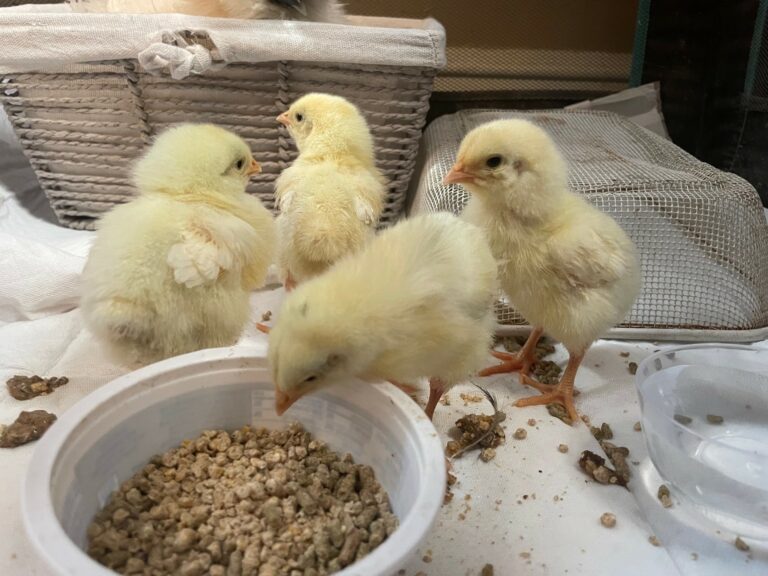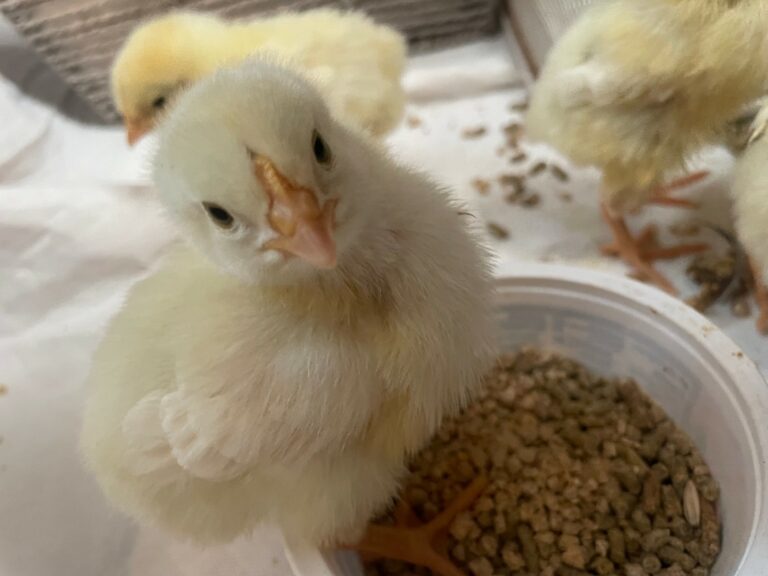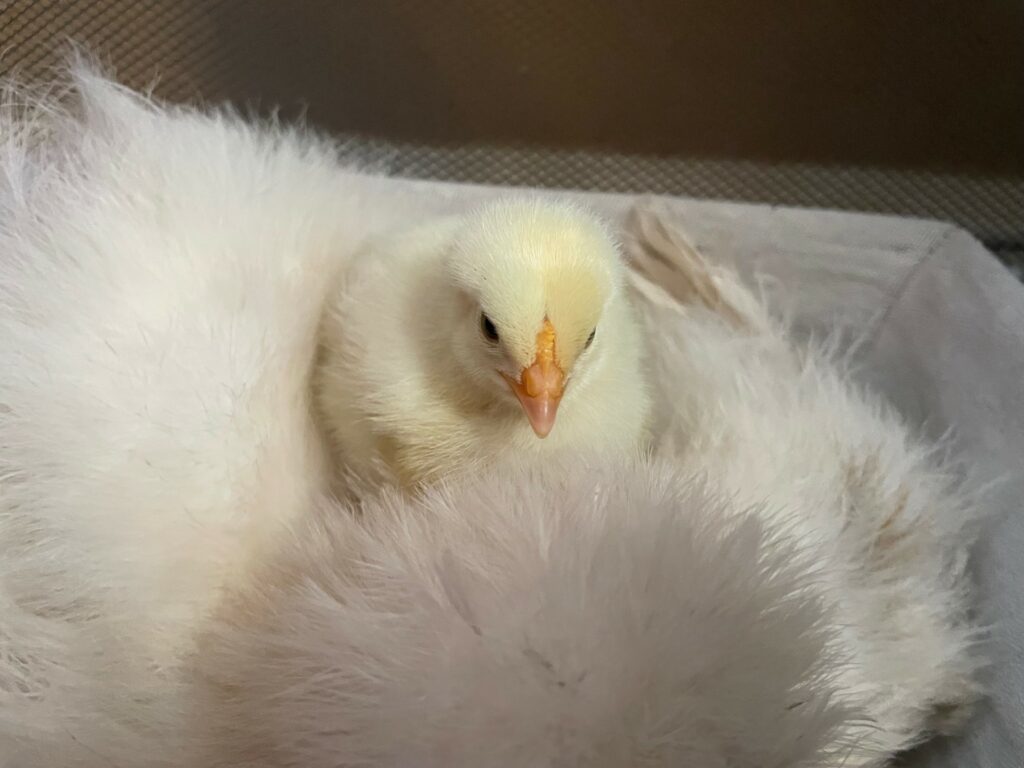Introduction
Have you ever sat down to a nice meal at home or at a restaurant and wondered, “Who raised this bird? Was it a boy or girl? What was it fed? Where did it come from? What condition(s) was it living in?” I often find myself going through a majority of these questions in my head every time I am presented with a decision to eat chicken at home or when eating out. When purchasing my own chicken products at the store I often wonder how much, or if any of the decisions we as consumers make within big box stores are actually making a difference or not.
Is my preference of organic cage free/pasture raised chicken breasts really increasing the quality of life for the birds I am choosing to eat? I often wonder if the meat being sold under these various labels is actually as good as it sounds on paper. I frequently hear conventional ranchers and farmers allude that most of the differences in chicken at the store differ very little in how they are raised. I have also heard that most of the phrases and words associated with the free range movement are just buzzwords used to help persuade/convince the consumer that the poultry they are eating are actually full of life and raised in a way which seems more “humane” in today’s standards.
As I mentioned previously, many argue that the housing arrangements for many of these “cage free” or “pasture raised” chicken products we find in the store are actually not really much different than the conventional meat and birds that are commonly sold at supermarkets. This reestablishes my previous skepticism toward the greenwashing/marketing movement leading me to associate terms like “free range“ with an equal or lesser quality of life for the bird, leading to an equal or lesser quality of meat/chicken when compared to standard/conventional chickens.
For those readers who know me personally or have been reading long enough to figure me out may have picked up on the fact that I like to get things from the source directly or do it myself. I have especially carried this trend with me when reevaluating my diet and the sources from which I gather my food. The gateway drug to this lifestyle/mindset for me was fishing, gardening, and tasting the stark difference between homegrown produce and wild fish when compared to store bought produce and fish. I will always encourage everyone to take control of their food security/source whenever possible for many reasons.
Continuing on this trend in 2024, I decided that this would be the year that I embarked on attempting to take greater control over the meat products that I intend on consuming this year. I recently purchased 4 Cornish Cross chicks to dip my toes in the water and give backyard chickens a try since it has been a dream of mine for many years while I was in school living in an apartment. 4 birds may not seem like much the average person, but when you consider the amount of food a single bird consumes from birth to slaughter and the potential amount of meat one can harvest from these birds is impressive. These birds are intended to grow very quick (within 8 weeks) and produce an economical amount of meat. In the future I would like to consider raising heritage varieties of meat birds, but I will stick with the hybrids for now.
Cornish cross are one of the most common chickens you can buy for the purpose of meat production. I purchased mine at a local feed store for about $3 a piece along with some pine shavings, organic chick feed and a water dish. There are more things to consider when raising chicks, but I will not go into that in this article. The purpose of this article is to give 5 reasons why you should raise meat chickens, as well as to exclaim the importance of raising your own chicken for meat to better connect with your food, ensure the quality of life for your food, raise fresh food in your backyard, set your own standards/ethics, and potentially save money in the long run.
1. Connection to Your Food
It is a surreal experience to connect with your food for the first time. On one hand it can be a rewarding experience to put in a sum of energy and effort initially and then reap the rewards later in time, especially when it comes to things like vegetable gardening. I am sure that everyone knows that raising livestock and vegetable produce are not the same; it is easily assumed that raising livestock with the intention of butchering it at some point down the line is not for the faint of heart. The entire process is bittersweet as you still receive the rewarding experience associated with having an abundance of food and the delayed gratification from all of your work, but on the other hand you have been forced to interact and care for these animals to ensure that they would make it to their day of slaughter.
For me that seems like the hardest hurdle to overcome. I personally view humans and animals as equal and do view the taking of a life as a relatively sacred act and not something that should be done with disrespect or hatred. It is our duty to ensure a quick death to the animals which we have decided to raise. When the roles are reversed and Mother Nature is demanding that I leave the keys to my leased body, I hope to experience a quick and relatively painless release from this life.
A direct connection to our food means a direct connection to the cycle of life. It reminds us not only of our own looming mortality, but the beauty of life at all stages. It makes you appreciate what I consider to be the “real world” and forget about all of the things that humans have made up over time. The human story has always revolved around looking for food or raising food in some way shape or form. I see it as though it is in our DNA to carry on such a legacy and do whatever we can to maintain such a sacred connection to the Earth and its natural processes.

2. Better Quality of Life
One perk with being in control of your own food is that YOU get to call the shots. You get to decide if you wish to treat your livestock with hormones or antibiotics. You get to decide if you wish to feed your livestock scraps from the garden or only premade food. You get to decide if your chicks will get to forage outside of their coop every day or if they will be allotted an area of space within a chicken run. This may seem overwhelming to some who have never considered all of the choices that were made for them for many years, but I assure you it is not complex.
Typically, backyard chickens live a much better life than many of the chickens within the industrial farming industry leading to a better quality of life for the chicken overall. This helps make it feel better in the end of things when butchering as it is nice to know that he chicken lived better than a lot of chickens that are currently in subpar living standards.
3. Fresh Meat
With the greater quality of life of your chicken comes a better tasting chicken. We all know the saying, “you are what you eat” but many don’t really consider what that means in its fullest extent. The saying applies not only to the nutrition of the food that you consume, but the overall health of the animal and its potential impact on you. We all prefer to eat animals that are somewhat fatty/lean, robust, and lively. These are all indicators that the animal was very good health and does not carry any obvious illness or pathogen. Animals living in poor conditions are more prone to pests like mites and infections, some of which can impact us.
Beyond the physical conditions and their impacts on the quality of the meat that we consume, being able to harvest, pluck, and clean/butcher a chicken in the same day and get it stored in the freezer or canned preserves the quality immensely. It is well known that the best quality is the day you harvest the animal, but the next best option is to vacuum seal/freeze it or pressure can it soon after harvest. All of these options do great jobs at preserving the flavor, texture, and nutrients within the meat.
4. More Ethical

Now it should be clearer than ever. If you wish to get the highest quality meat or you and your family then you should be raising your own meat! When you do things yourself and have a direct incentive to take the time and care about the little things, we as humans tend to put more emphasis on its importance. If you take the time to build a connection with your food and raise it to the ethics/standards that you see fit, I can assure you that you will be amazed at the difference in quality and taste that comes from raising your own small flock.
If one is going to continue to eat meat and not be vegetarian or vegan then I strongly encourage them to butcher their own chicken. It is important to understand the sacrifice that an animal must make in order for one to keep living otherwise the animal died for nothing. Once you have made this connection it will be hard for you to throw away a plate of scraps or food because you are too full or didn’t really enjoy the dish. You will understand all that it took for the chicken to be where it is today and appreciate it. Every animal deserves respect, even in death.
5. Can Help Save Money
To me raising your own food is so much more fulfilling in other ways than just economical. I did the math this year and estimated roughly that one can raise many pounds of chicken meat on relatively little amounts of feed. If you are considering raising chickens organically then it will cost more per pound, but when compared to the prices at the store you will still be saving money over time if you continue to raise birds in batches year after year. It is even possible to cut costs by growing some of your own chicken feed/supplements with things like dent corn, sorghum or other grains and allowing for birds to naturally forage if they are free range or in a tractor set up.
Once you get a good method down you could consider raising extra and selling them to friends/family who may want more locally grown livestock from a source that they can trust. The hardest part of the process besides butchering is allocating a sum of money to the initial investment of things like birds, coops, and all other costs of operation.
Conclusion
Raising chickens for meat should be a requirement for all people who eat meat. It can help people reestablish a lost connection with their food and potentially increase the wellbeing for livestock overall in the end. There are many benefits to raising meat bird varieties as I have shown above, but encourage you to look up some videos if you are interested. So far it has been an interesting process for myself and I am excited to see what happens in the future with the breed I have chosen. I hope that this article has inspired some of you to look more deeply into what you can do for your food supply and maybe cast a different light on the idea as a whole.
